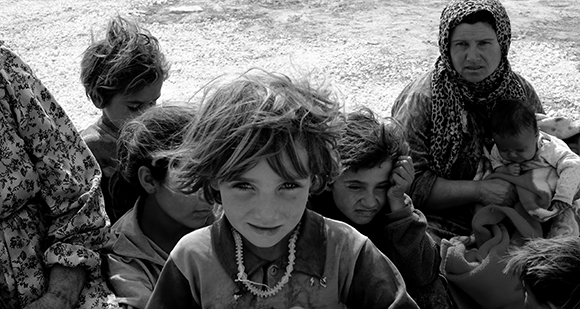Ramadan, the most holy month of the Muslim calendar, has just come to a close. Ramadan is a time to dwell on the world’s suffering, those who are hungry and thirsty and homeless and in danger. One pillar of Islam is charity. Ramadan reminds people to remember our obligation to serve all of those in need as brothers and sisters. Other religions, including Christianity, Judaism, Buddhism, and Hinduism, embrace similar ethical precepts.
This year, Ramadan immediately precedes the United Nations sponsored World Refugee Day across the world.
“World Refugee Day is an expression of solidarity with people who have been uprooted from their homes by war or persecution . . . This is not about sharing a burden. It is about sharing a global responsibility, based not only on the broad idea of our common humanity but also on the very specific obligations of international law.”
–António Guterres, UN Secretary-General
The United Nations was established in 1945, after the tragedy of World War II and the millions of refugees left in its wake. In 2001, World Refugee Day was established by the United Nations in order to honor those who are refugees and the resilience they have in the face of tragedy. Currently there over 25.4 million people in the world identified as refugees, more than at any other time, including World War II.
The UN definition for refugee does not even include the over 40 million who are internally displaced due to war and violence. It does not include the millions who face starvation due to climate change and increasing sea levels. The UN estimates that there are approximately 152 million people in the world who currently need humanitarian assistance.
As we think of World Refugee Day this month, here are some highlights of current events as described by the United Nations and other international service organizations:
- 16.2 million people were newly displaced in 2017;
- 11 million Syrian refugees plus an additional 6 million internally displaced are the largest war victim group now;
- Dadaab refugee camp in Kenya housing Somali refugees, and Bidi Bidi refugee camp in Uganda housing South Sudanese refugees, compete for the dubious distinction of the world’s largest refugee camp. Each camp houses hundred of thousands of refugees.
- 5.4 million Palestinians, housed in refugee camps established in the late 1940’s in the Palestinian occupied territories and surrounding countries, still await a homeland.
- Most refugees, about 86%, are hosted in developing countries with limited resources. The US hosts less than 1%, historically around 80,000 to 100,000 annually. The number authorized for US resettlement this year is about 45,000, but US professionals expect that only slightly over 20,000 will be resettled in the US this year.
- Middle Eastern nations are accelerating their proxy war in the region’s poorest nation, Yemen, with an attack on the port city of Al Hudaydah, using US military weaponry, putting an estimated 8 million Yemeni civilians at risk of starvation;
- The UN describes the million Rohingya refugees caught between Myanmar and Bangladesh as the fastest growing refugee crisis and the “most persecuted minority” as their ethnic cleansing continues;
- Thousands of children of Central American families seeking asylum have been separated from their parents and are incarcerated on the Southern US border this year.
In spite of all of this, the Kakuma refugee camp in Kenya, with hundreds of thousands of Sudanese refugees, just held a first-ever TedX event. Watch it here. Refugees are maintaining hope by celebrating life with spoken word, music, and affirmation.
In the midst of all of this suffering, we need to remember our common humanity, our commitment to loving our neighbors, whoever they may be and wherever they are, in this interconnected world.
David Brooks in a New York Times editorial (June 15, 2018) stated, “dignity does not depend on what you do, how successful you are or whether your school calls you gifted. Infinite worth is inherent in being human. Every human encounter is a meeting of equals. Doing community service isn’t about saving the poor; it’s a meeting of absolute equals as both seek to change and grow.”
We may not be able to help all of the world’s refugees, but we can bear witness to the issue and honor those who have persevered in spite of this adversity.
Raleigh Bailey, Ph.D.
Director Emeritus
UNCG Center for New North Carolinians
CNNC Research Fellow
See comments by CNNC Director, Holly Sienkiewicz, on World Refugee Day locally.
